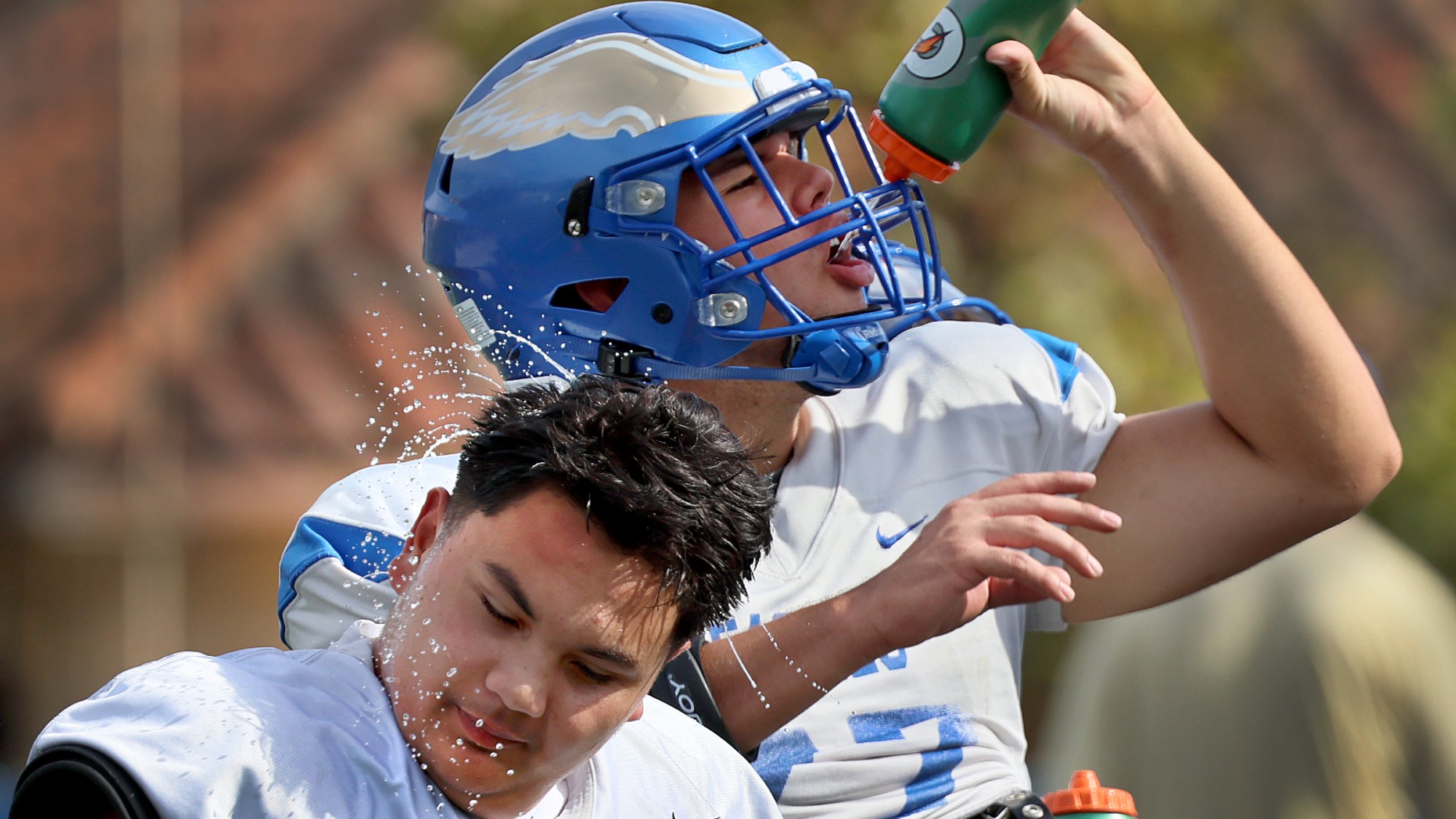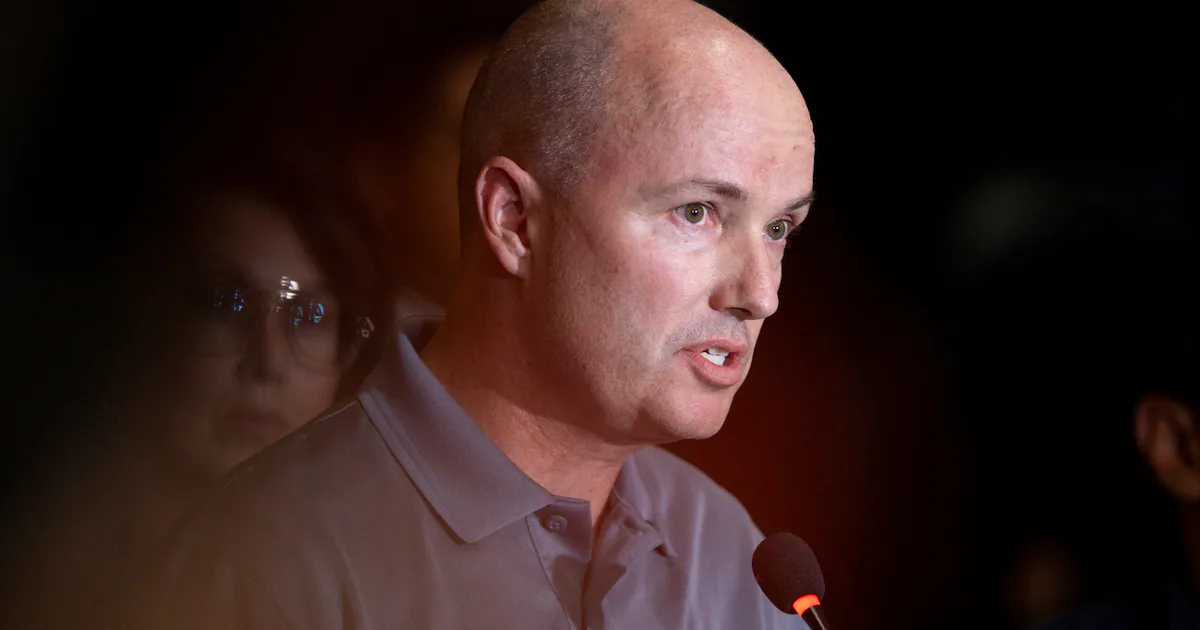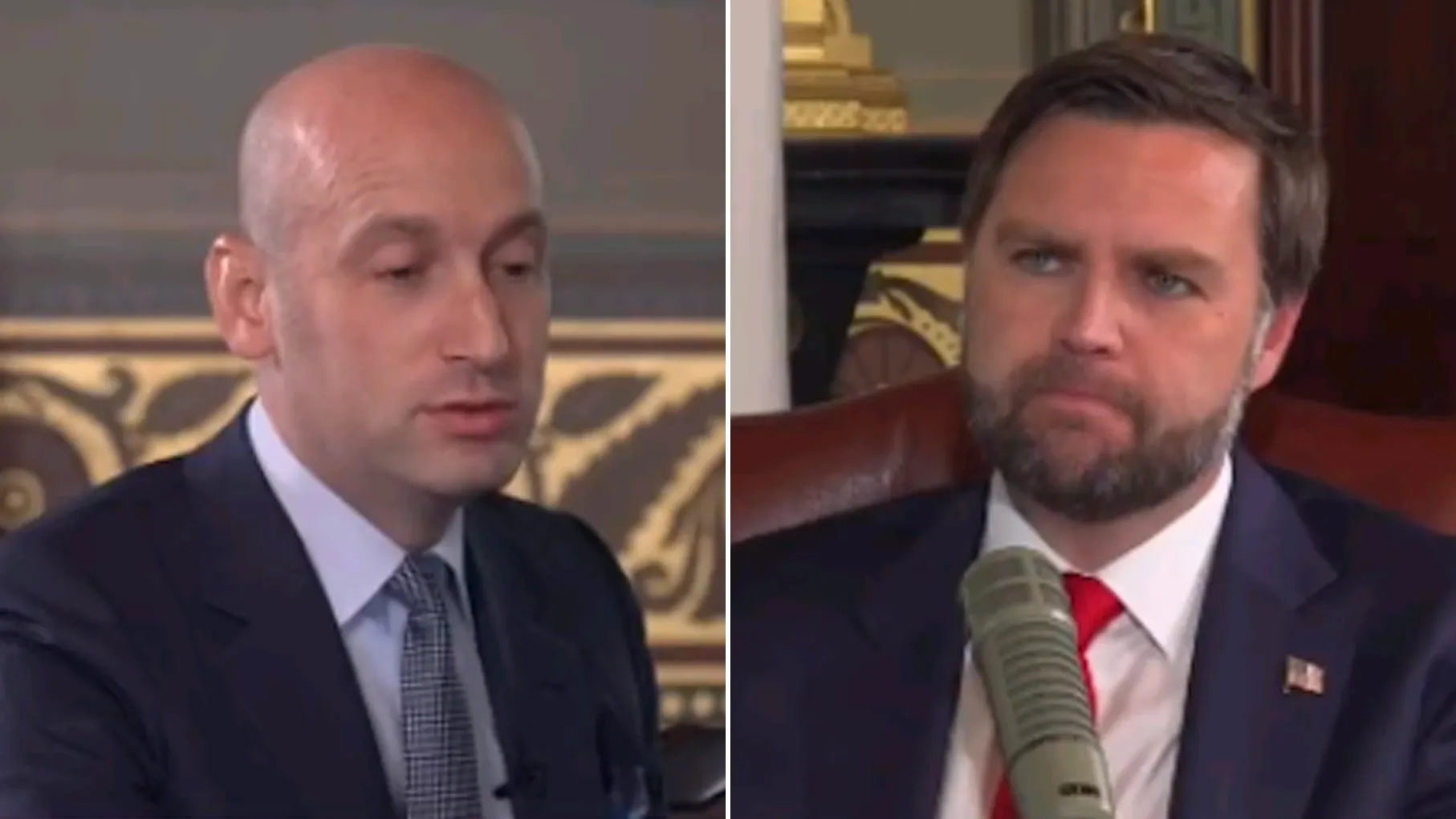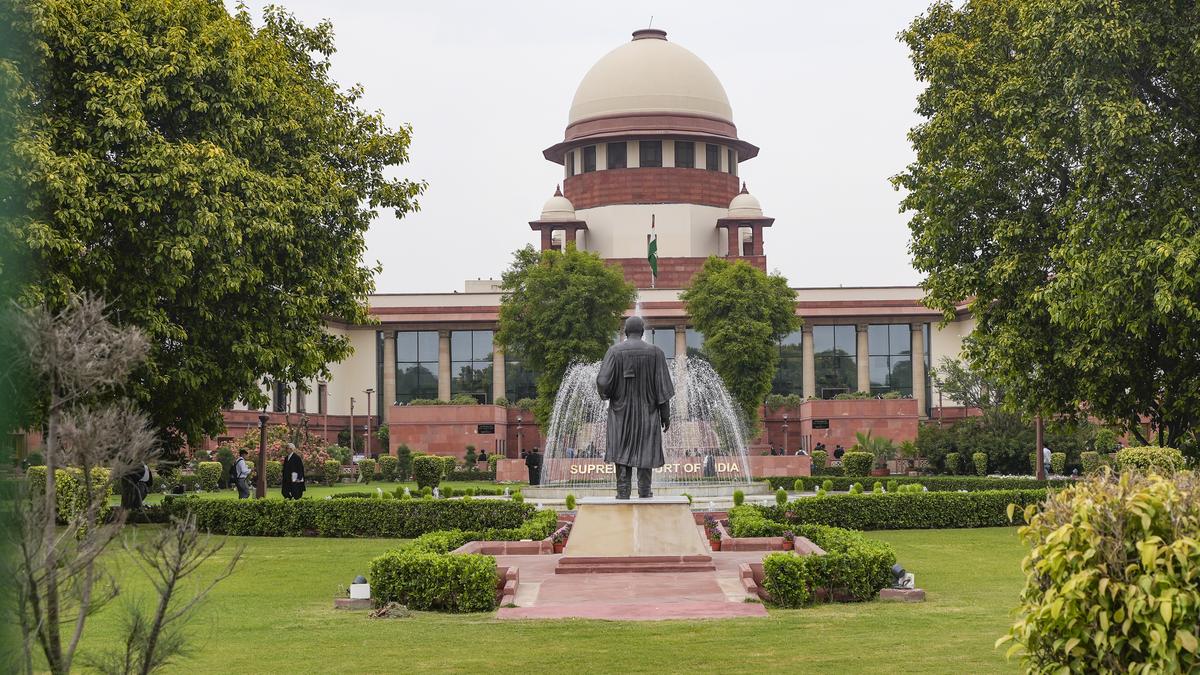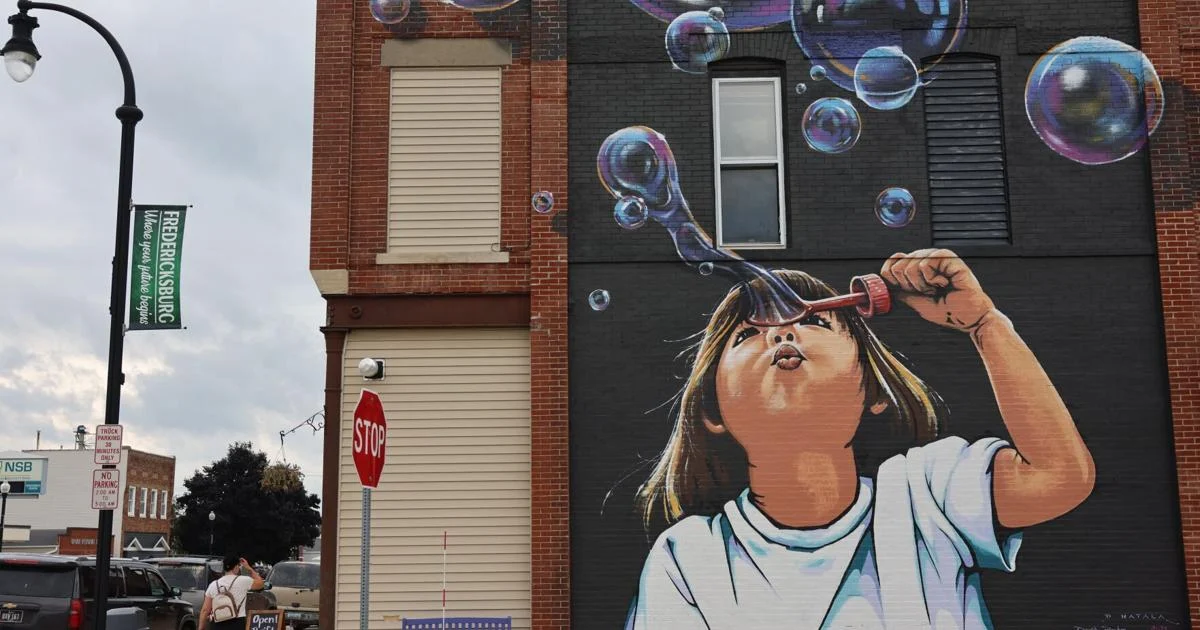
Bryan O’Day is closely intertwined with his community of Fredericksburg, a town of around 980 people in southern Chickasaw County.
The 82-year-old was a farmer, the mayor of Fredericksburg for nearly a decade, and is now active in the Northeast Iowa Antique Engine and Power Club.
During the club’s annual show in August, O’Day talked to members and onlookers near a steam-powered tractor from the early 1900s that whirred and blew out steam.
“We’re all bound to the Earth when we live in Iowa, one way or another, because of, you know, manufacturing, because of machinery,” O’Day said.
Chickasaw County, which sits south of Howard County and is under an hour’s drive from Waterloo, has roughly 11,719 residents as of 2024.
The county is home to the “Little Brown Church in the Vale,” an active church, popular wedding venue and tourist attraction built between 1860 and 1864 that sits on the eastern edge of Nashua.
Over the last 12 years, Chickasaw County has seen the second-largest shift toward Republicans in presidential elections out of Iowa’s 99 counties. Between 2012 and 2024, the county has taken a 47.9 swing toward Republicans.
Former President Barack Obama won the county by 11 percentage points in 2012. President Donald Trump won the county by nearly 23 percentage points in 2016 and increased his margins in the next two presidential elections, winning by about 31 percentage points in 2020 and nearly 37 percentage points in 2024.
O’Day has seen this flip right before his eyes.
“New Hampton was a Democratic stronghold for years,” O’Day said. “Ain’t no more.”
While many in his county put their support behind Trump, O’Day voted for former Vice President Kamala Harris. O’Day, a registered Republican who was raised in a household that supported former President John F. Kennedy, has voted for Democrats in the last three presidential elections because he felt the Republican Party he once knew is now unrecognizable.
“There are a lot of Trumpers. I think the county is pretty full and they’re good people, but I mean you know, we just disagree,” O’Day said. “I won’t make any strong cases against them (Republicans), but they won’t get my vote.”
The county is 98% non-Hispanic white, compared with the state-wide average of roughly 83%. Just 19.1% of residents hold bachelor’s degrees, which is just over half of Iowa’s 31.5% degree attainment average. And the average annual household income is $73,421, above Iowa’s $71,433.
Doug Kleiss has lived in Chickasaw County his whole life and doesn’t plan on leaving.
“I wouldn’t want to live anywhere else,” Kleiss said. “I’ve traveled in a lot of different states and countries in my life, and I would always like to get home.”
The farmer has been involved in local Republican politics for a while and joined the Chickasaw County Republicans of Iowa’s central committee around five years ago. He doesn’t always agree with Trump’s delivery of his message, but said he feels like the president is delivering on his campaign promises during his second term.
“Trump wasn’t a career politician, Trump was a businessman,” Kleiss said. “Trump sometimes says things that upset me. He sometimes ought to have a sock stuck in his mouth, but he’s not afraid to speak what he’s thinking and he works hard. You’ve got to give the man that. And he loves his country.”
Kleiss likes Trump’s approach to immigration, the war in Ukraine and many of his cabinet members, including Secretary of Agriculture Brook Rollins.
He says Trump appeals to the working class, and former Iowa Democratic state lawmaker Todd Prichard agrees.
Prichard, who was in the Iowa House for a decade, served as the House Minority leader from 2019 to 2021 and is now the Floyd County attorney. He was one of the last Democrats to represent the rural area in northeast Iowa, representing House District 52, which formerly included Chickasaw County before redistricting. Prichard said people in the county were ready for a political change and Trump fit the ticket for many.
“He (Trump) seemed like an outsider. I think he seemed like somebody who wasn’t straddled or harnessed by the traditional politics,” Prichard said. “He made big promises and bold, bold statements. And I think people were kind of ready for that, you know, kind of a different dogma, a different approach to politics.”
Chickasaw County’s July unemployment rate of 3.5% sits below the rates of surrounding counties and the Iowa average of 3.7%, as the area is still recovering from closures of major manufacturers.
One of the largest hits to the county’s workforce was the closure of the New Hampton Sara Lee plant in 1999, which had been a part of the town’s identity since 1972. The company moved operations to Michigan and North Carolina and around 625 people, or 7.9% of the county’s labor force, were laid off.
Prichard said Sara Lee’s union presence in the area was hurt by the company’s departure from the area, which contributed to the feeling by residents that their community was left behind.
“I would think that it (Trump’s election) would appeal to towns and people in rural Iowa who have seen a lot of good jobs leave the area. They’re struggling with things like access to health care, just the decline in services in rural Iowa,” Prichard said. “I think people see that and they’re like, ‘Well, we need, we need something. This ain’t working. You know, we’re losing jobs, we’re losing population.’
“Trump probably spoke to that to say, you know, we’re gonna change the dynamic here.”
‘The message got lost’
Prichard could see the political shift coming well ahead of 2016.
The county was once one full of “JFK Democrats,” he said. But in 2010, he saw the cracks in Democratic support start to form during the gubernatorial election, where former Republican Gov. Terry Branstad beat former Democratic Gov. Chet Culver.
Like many other counties in the state, Branstad took Chickasaw by an even larger margin in 2014.
In the last few general elections, Prichard said the national Democratic party’s message didn’t have a focus on everyday issues including access to good jobs, healthcare and building a community to make it livable.
“Those issues weren’t the priority or they weren’t what Democrats were talking about. And I think, you know, as a Democrat, I think it’s kind of unfair,” Prichard said. “That message got lost in a lot of a lot of the noise from conservative media and then Democrats were just put on the defensive on so many social issues that they lost their message in terms of being champions of the middle class and working people.”
Tami Haught, a member of the Chickasaw County Democrats who lives in Nashua, also remembers the time of Democratic political control in the county.
Less than a decade ago, the area was represented by two Democrats in the Iowa Legislature: Prichard until 2023 and former state Sen. Mary Jo Wilhelm of Cresco until 2017. Now, it has full Republican representation.
Haught believes the change in political power is due in part to campaign funding provided by Charles and David Koch, billionaire industrialists and big-money conservative donors from Kansas. Ahead of the 2016 election, the brothers donated tens of thousands of dollars to Republican candidates for the Iowa Statehouse.
“The Democratic Party at the state level missed the mark on several things, but when you have billionaires putting so much money in, there’s that unfair balance,” Haught said.
Ahead of the 2024 election, Haught worked diligently to get Democrat Gail Allison elected to the Iowa House seat held by Republican Rep. Charley Thomson of Charles City. Allison ended up losing to Thomson by 27 percentage points.
‘It just seems like nobody’s really 100% correct’
Many of Chickasaw County’s voters aren’t registered with a specific political party. As of September, the county had 2,844 active registered Republicans, 1,604 active registered Democrats and 2,240 active registered no party voters.
One of the people who doesn’t subscribe to the current political landscape is 22-year-old William Clark.
Clark was born and raised in Chickasaw County. He is now married and has a daughter who recently turned 1.
Standing outside of a barn at an antique tractor show in Fredericksburg where he and his wife, Kelsey, took his daughter to see the engines and animals, Clark tried to remember whether he had voted in the 2024 November election. He had previously voted for Trump in 2020, but said he forgot to vote last year.
“(I) just didn’t care,” Clark said. “Wasn’t really an active decision, just I kind of forgot about it.”
Clark’s main reason for staying in the county while other young people he knows have left is his family, adding that it’s a good place to raise kids.
Conservation is top of mind for Clark, who frequently fishes in northeast Iowa’s streams. He worries about the impact agriculture in his county has on the county’s environment.
And divisiveness and polarization, Clark said, are the main reasons why he’s tuned out of politics.
“I try not to consume too much of the political stuff because it just pits people against each other.
“My family, half of them are really Republican, and half of them are really Democrat, and I’ve just seen it tear our families apart,” Clark said. “They all argue with each other, and it just seems like nobody’s really 100% correct.”
Haught, who has political differences with some of her own family, also worries that the community she once knew may never bounce back from the current era of political polarization.
“In my opinion, the community as a whole, and we don’t have that anymore,” Haught said. “Right now, we’re so polarized that the fear and the hate that is tearing us apart, and I don’t know what it’s going to take to bring us back together, other than trying to get more purple areas, to bring sanity back and to bring humanity back to the political process.”
Love
0
Funny
0
Wow
0
Sad
0
Angry
0
Get Government & Politics updates in your inbox!
Stay up-to-date on the latest in local and national government and political topics with our newsletter.
* I understand and agree that registration on or use of this site constitutes agreement to its user agreement and privacy policy.
Maya Marchel Hoff
Statehouse Reporter
Get email notifications on {{subject}} daily!
Your notification has been saved.
There was a problem saving your notification.
{{description}}
Email notifications are only sent once a day, and only if there are new matching items.
Followed notifications
Please log in to use this feature
Log In
Don’t have an account? Sign Up Today
Sarah Watson
Davenport, Scott County, local politics
Get email notifications on {{subject}} daily!
Your notification has been saved.
There was a problem saving your notification.
{{description}}
Email notifications are only sent once a day, and only if there are new matching items.
Followed notifications
Please log in to use this feature
Log In
Don’t have an account? Sign Up Today
